George Washington Worksheets
Do you want to save dozens of hours in time? Get your evenings and weekends back? Be able to teach about George Washington to your students?
Our worksheet bundle includes a fact file and printable worksheets and student activities. Perfect for both the classroom and homeschooling!
Resource Examples
Click any of the example images below to view a larger version.
Fact File
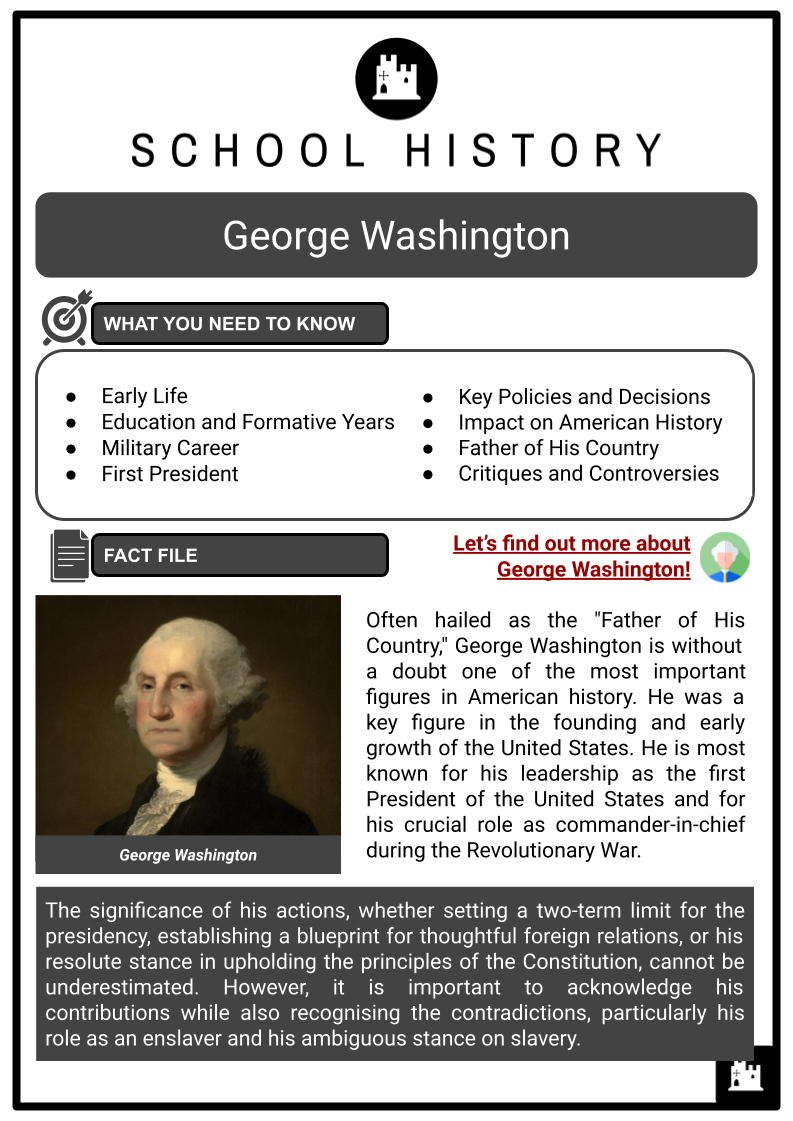
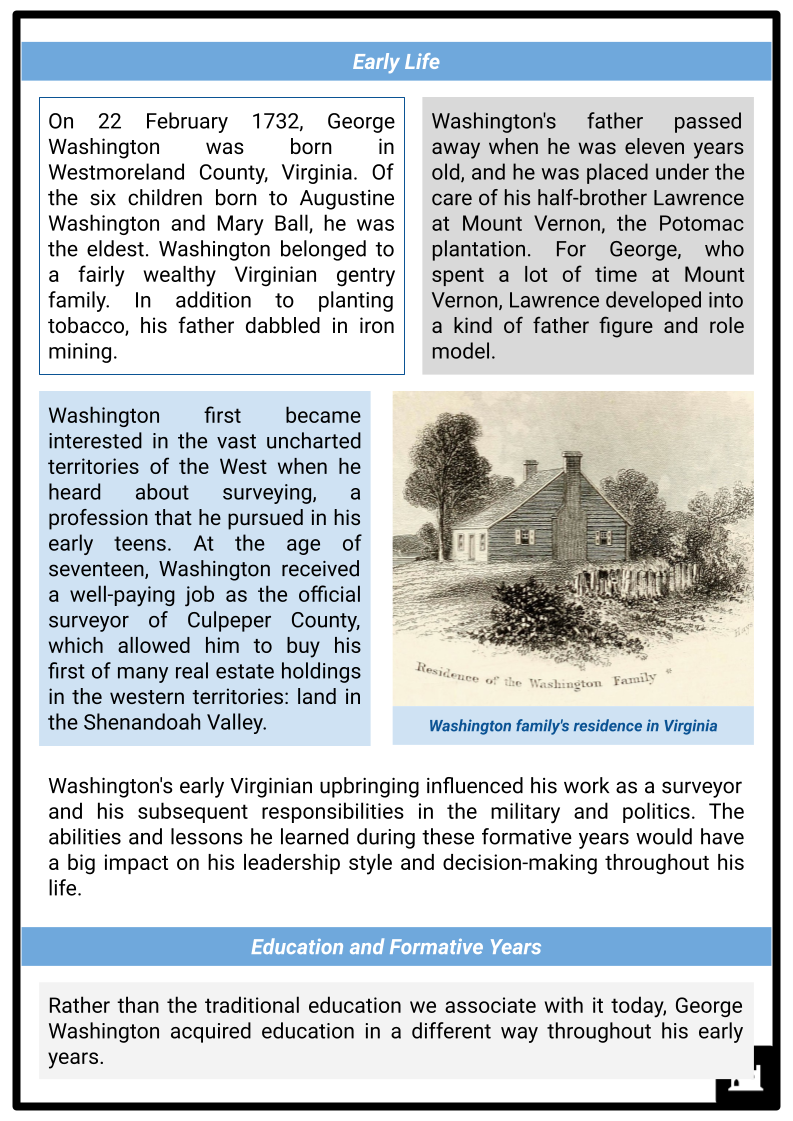
Student Activities
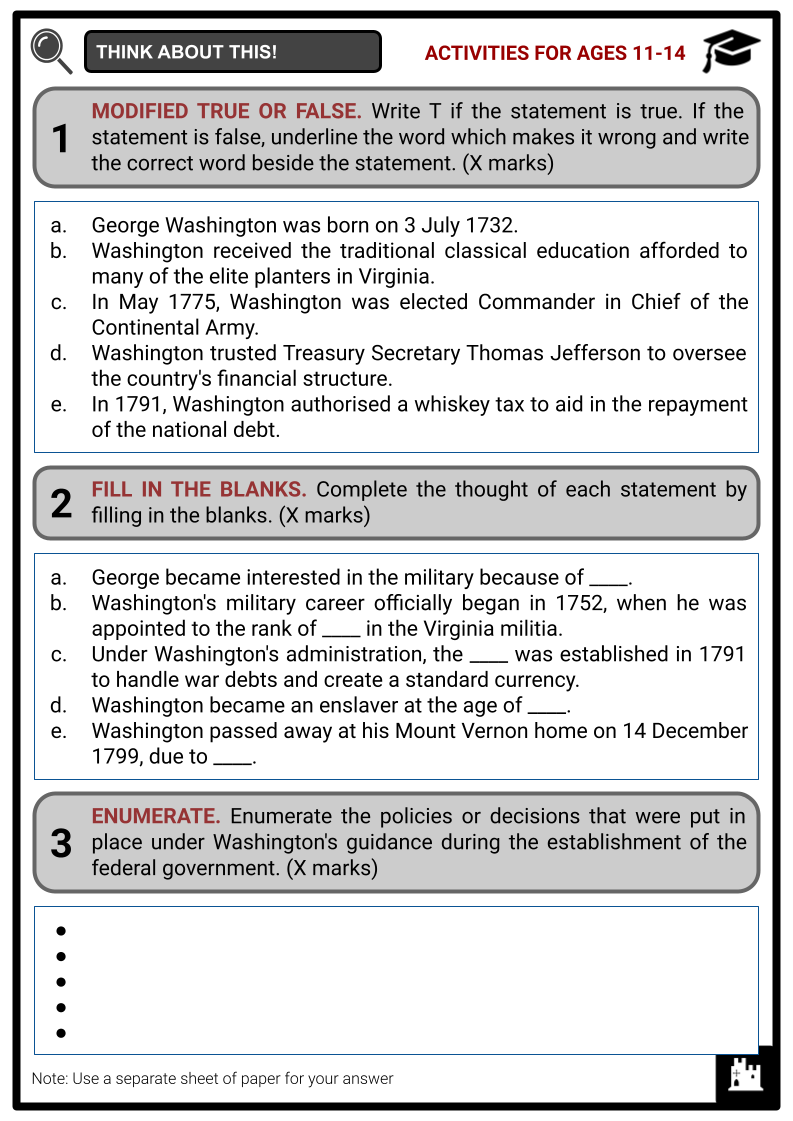
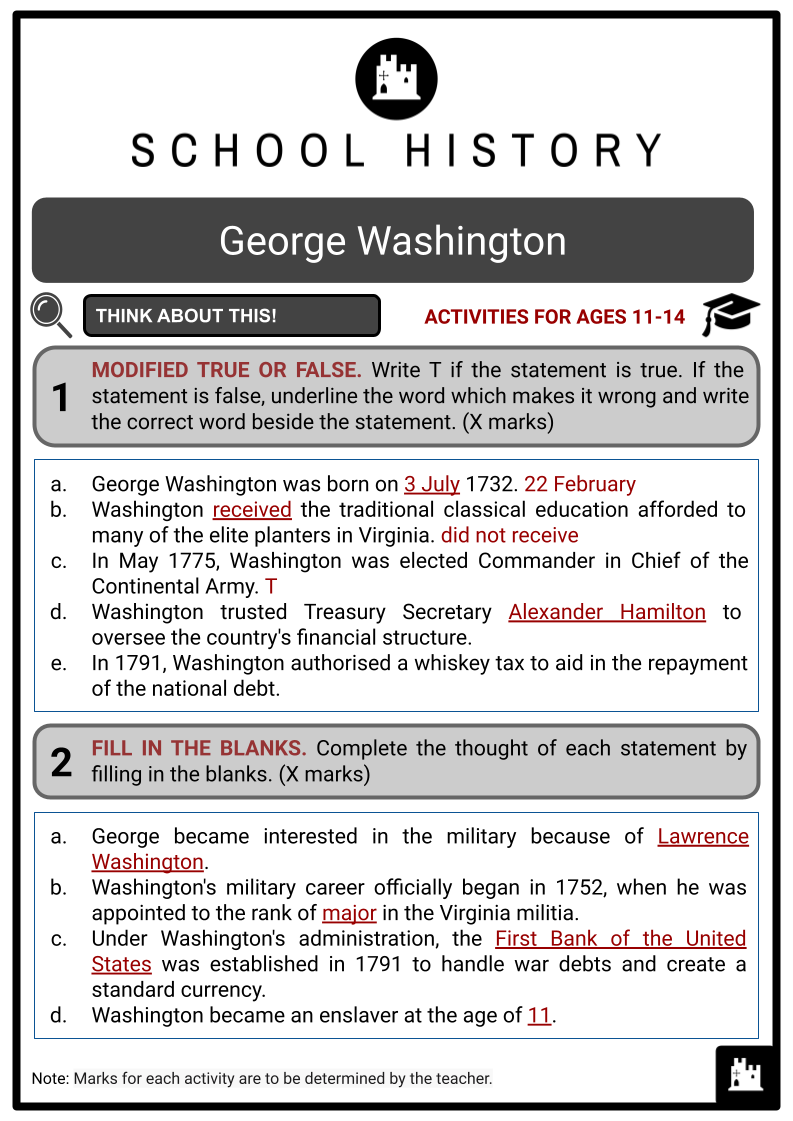
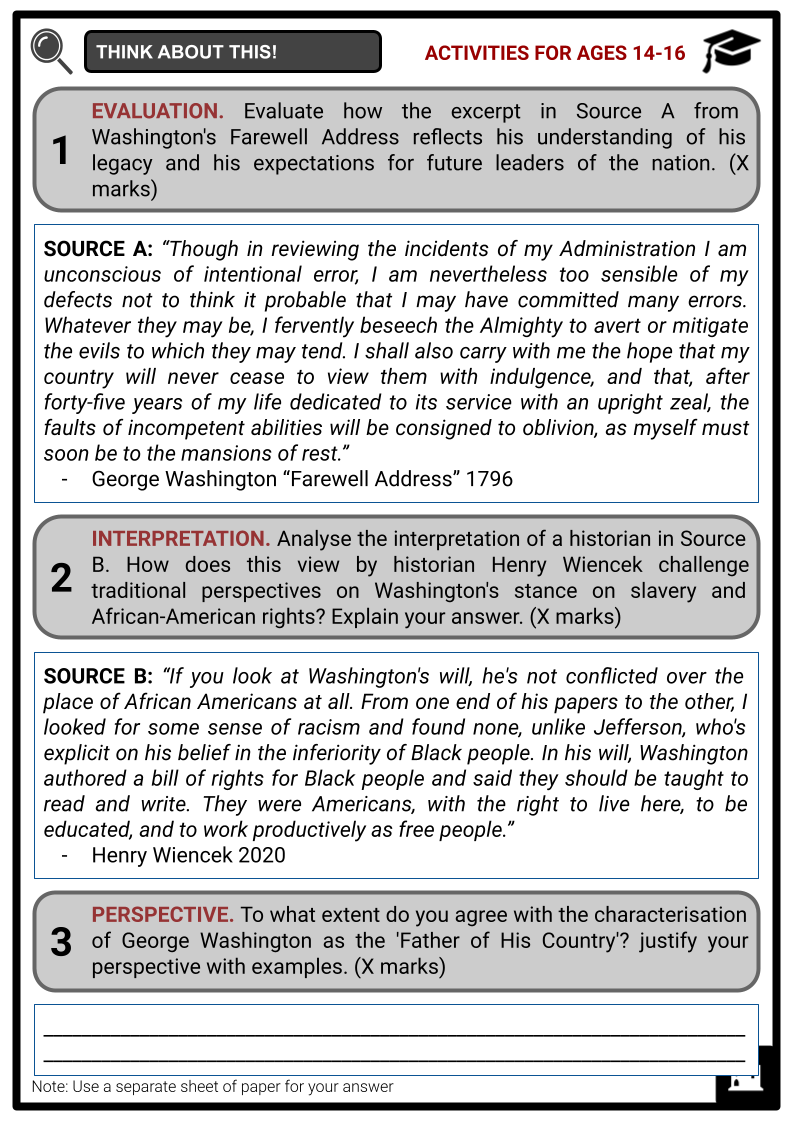
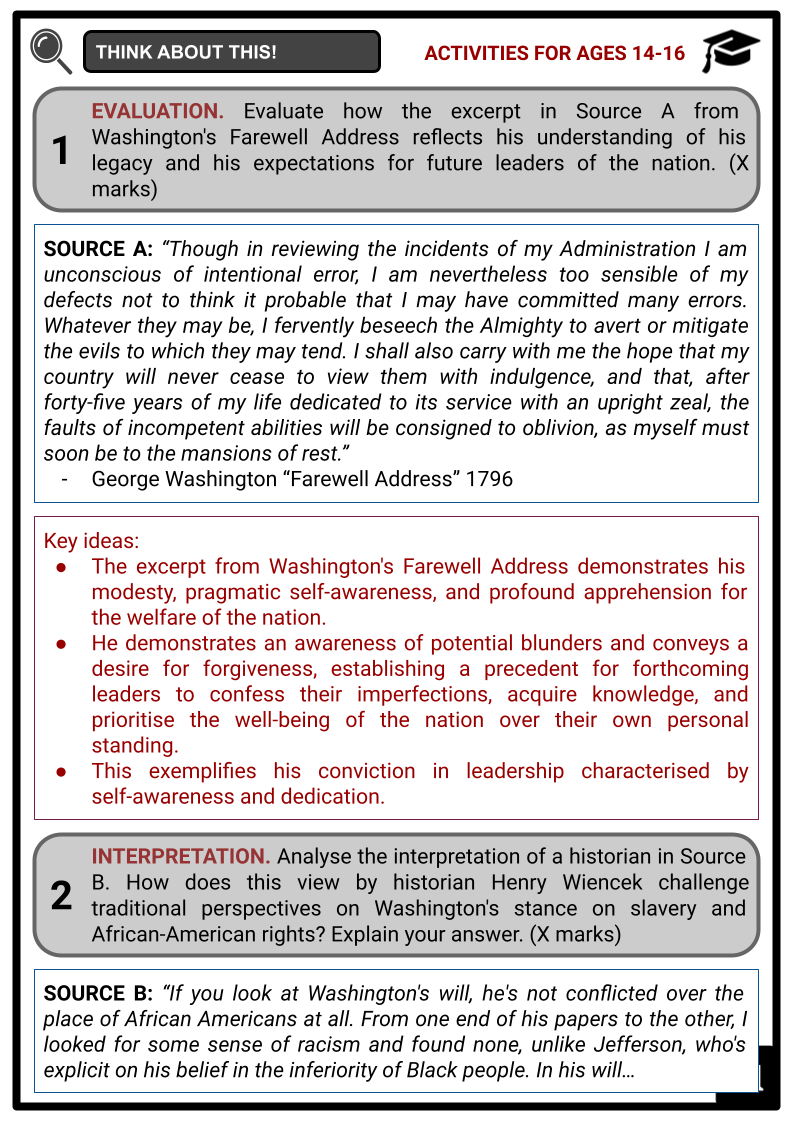
Summary
- Early Life
- Education and Formative Years
- Military Career
- First President
- Key Policies and Decisions
- Impact on American History
- Father of His Country
- Critiques and Controversies
Key Facts And Information
Let’s find out more about George Washington!
Often hailed as the "Father of His Country," George Washington is without a doubt one of the most important figures in American history. He was a key figure in the founding and early growth of the United States. He is most known for his leadership as the first President of the United States and for his crucial role as commander-in-chief during the Revolutionary War.
The significance of his actions, whether setting a two-term limit for the presidency, establishing a blueprint for thoughtful foreign relations, or his resolute stance in upholding the principles of the Constitution, cannot be underestimated. However, it is important to acknowledge his contributions while also recognising the contradictions, particularly his role as an enslaver and his ambiguous stance on slavery.
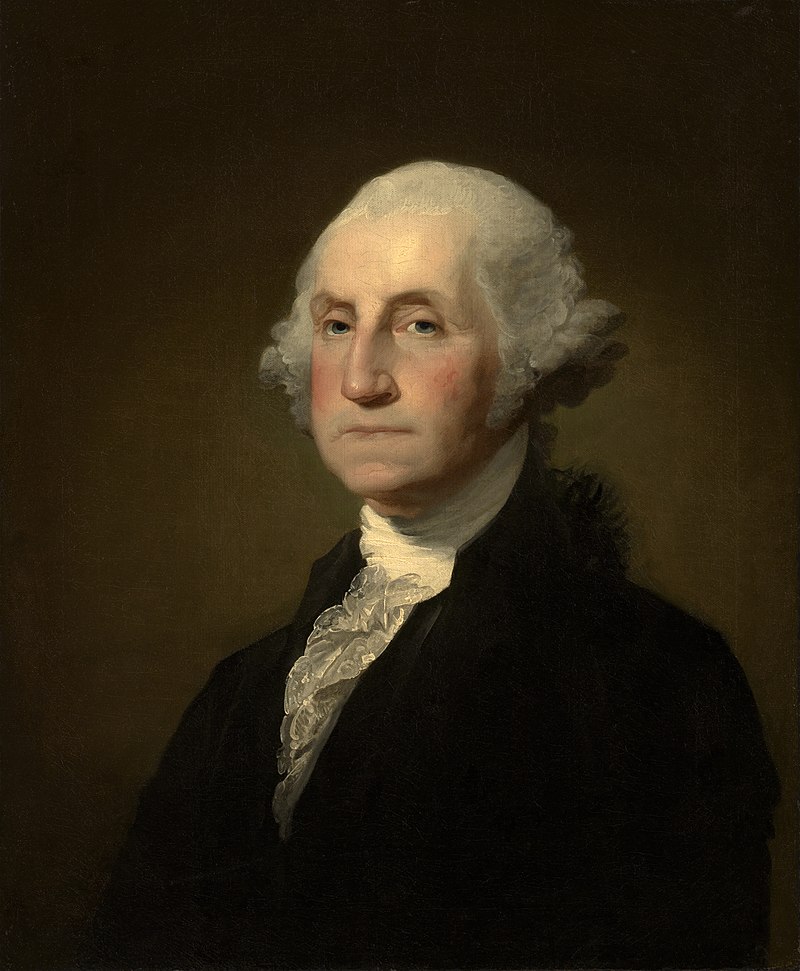
Early Life
- On 22 February 1732, George Washington was born in Westmoreland County, Virginia. Of the six children born to Augustine Washington and Mary Ball, he was the eldest. Washington belonged to a fairly wealthy Virginian gentry family. In addition to planting tobacco, his father dabbled in iron mining.
- Washington's father passed away when he was eleven years old, and he was placed under the care of his half-brother Lawrence at Mount Vernon, the Potomac plantation. For George, who spent a lot of time at Mount Vernon, Lawrence developed into a kind of father figure and role model.
- Washington first became interested in the vast uncharted territories of the West when he heard about surveying, a profession that he pursued in his early teens. At the age of seventeen, Washington received a well-paying job as the official surveyor of Culpeper County, which allowed him to buy his first of many real estate holdings in the western territories: land in the Shenandoah Valley.
- Washington's early Virginian upbringing influenced his work as a surveyor and his subsequent responsibilities in the military and politics. The abilities and lessons he learned during these formative years would have a big impact on his leadership style and decision-making throughout his life.
Education and Formative Years
- Rather than the traditional education we associate with it today, George Washington acquired education in a different way throughout his early years.
- As a young man, he received instruction from several tutors in addition to his brief attendance at a nearby school. In addition to the usual subjects of mathematics, geography, Latin, and the English classics, his education would have also been heavily weighted towards character development and practical skills.
- George became interested in the military because of Lawrence Washington, who had served with Admiral Vernon in the British Navy, and his stories about life at sea. This, together with his education in geography, surveying, and land exploration, shaped him into a young man full of enthusiasm for frontier exploration.
- He did not receive the traditional classical education afforded to many of the elite planters in Virginia. Nevertheless, he was diligent and resourceful. Washington’s lack of a formal education would later be a matter of great insecurity, which led him to become a lifelong learner, reading and acquiring books throughout his life.
- Over the years, Lawrence's persistent ill health led Washington to take over some duties at Mount Vernon, further increasing his experience in managing a large estate. This practical education was invaluable, as it provided Washington with skills in management and leadership unseen in regular schooling. These skills would prove significant during his career as a military commander and statesman.
Military Careers and the American Revolution
- In the context of George Washington's military career, it is worth examining his formative military engagements during the French and Indian War. Notably, Washington assumed the role of Lieutenant Colonel within the Virginia Regiment, assuming a commanding position that entailed significant responsibilities.
- Washington's military career officially began in 1752, when he was appointed to the rank of major in the Virginia militia. He first saw action in 1754, during the start of the French and Indian War, and had several significant encounters, notably his surrender at Fort Necessity. Despite this early defeat, he gained valuable tactical knowledge and leadership experience.
- In 1755, during the disastrous Battle of Monongahela, despite the significant British losses, Washington distinguished himself through his bravery and presence of mind, an act that did not go unnoticed.
- After this time, he left his job, went back to Mount Vernon, and focused on his properties and political career until he was asked to take up a more significant duty—the American Revolution.
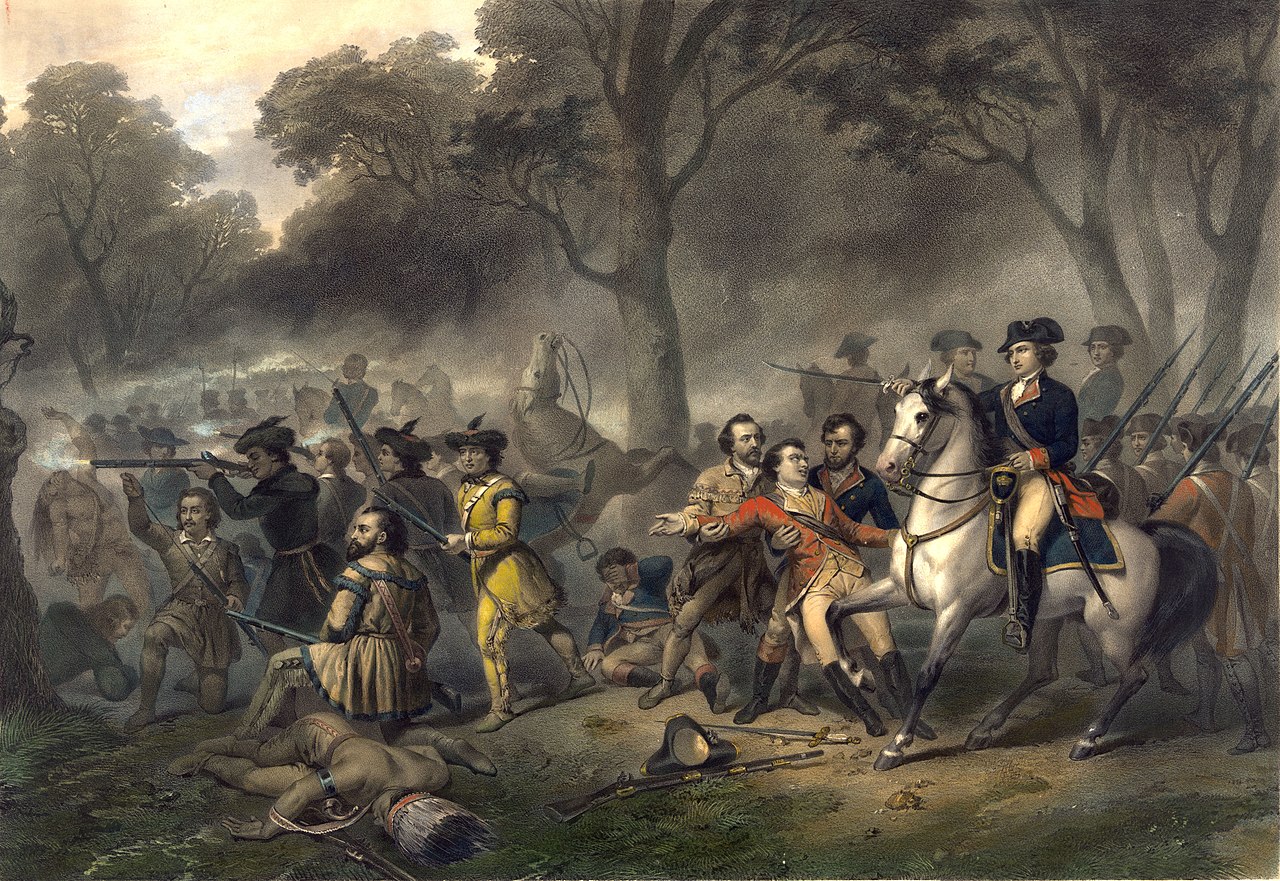
- When the Second Continental Congress assembled in Philadelphia in May 1775, Washington, one of Virginia’s delegates, was elected Commander in Chief of the Continental Army. On 3 July 1775, at Cambridge, Massachusetts, Washington formally took command, marking the start of his leadership during the American Revolution.
- Washington's tactical insight and unwavering determination propelled the Continental Army towards victory despite his limited experience in large-scale conflicts and the formidable opposition posed by the well-trained and well-equipped British military. Despite encountering several challenges, such as financial constraints, harsh winter conditions, and low soldier morale, he remained resolute in his pursuit of achieving American independence.
- His ability to navigate the Siege of Boston successfully, which forced the British to evacuate the city, was one of his most noteworthy accomplishments during the conflict. In addition, his Delaware River crossing on Christmas 1776 resulted in American triumphs at Trenton and Princeton, greatly enhancing national morale.
- Moreover, his command throughout the hard winter at Valley Forge is credited with teaching his soldiers perseverance and discipline. The Continental Army developed into a formidable combatant under his leadership.
- His pivotal role in the Revolution culminated in 1781 during the Siege of Yorktown, where Washington's army defeated the British with the aid of French allies, bringing the war to a close and paving the way for the United States to be recognised as an independent nation. Post-revolution, delve into the period when Washington retired from public life only to be called upon again, this time for the presidency.
First President
- George Washington's tenure as the first president of the United States played a vital role in setting a precedent for future presidents. He assumed his role on 30 April 1789, after being unanimously selected by the Electoral College. Washington took on the role with the intent of establishing the executive leadership necessary for the survival and success of the young republic.
- He worked diligently with his advisors, the Cabinet, to build concrete policies and instil order in the newly formed administrative structure. His cabinet included some of America's greatest minds, like Thomas Jefferson and Alexander Hamilton.
- During his two administrations, Washington led the country through many difficulties (1789–1797). An early and significant obstacle for him was the Whiskey Rebellion in 1794. Pennsylvanian farmers rose up in revolt when whiskey was subject to an excise levy. Washington oversaw an army that put down the uprising, proving the new federal government's legal enforcement powers.
- In terms of money, Washington trusted Treasury Secretary Alexander Hamilton to oversee the country's financial structure. Hamilton came up with a comprehensive plan that included establishing a national bank, supporting manufacturing sectors, and taking on all state debts accrued during the Revolutionary War. Washington's support of Hamilton's economic principles gave the administration the required financial legitimacy.
- Additionally, Washington's administration introduced a non-entangled foreign policy. In his Farewell Address upon leaving office, he emphasised the significance of upholding liberty, promoting peace, and preserving neutrality.
- Despite these successes, there were complaints levelled at Washington's presidency. His ratification of the Jay Treaty in 1795 caused a stir since it was perceived as benefiting Britain and strained ties with France. Political rifts grew as a result of his backing for Hamilton's financial ambitions, and the Federalist and Democratic-Republican parties emerged as separate entities.
- Notwithstanding his notable accomplishments, George Washington chose not to seek a third term in office. Through this action, he set a new precedent known as the two-term restriction, which rapidly gained popularity and eventually became legally codified in 1951. This served to encourage democratic leadership succession and restrain authority.
Key Policies and Decisions
Key decisions and policies that were crucial for the young republic's survival and success marked George Washington's presidency. Among these were:
- Assumption of State Debts
- Washington, backed by his Secretary of the Treasury, Alexander Hamilton, implemented a policy that allowed the federal government to assume all state debts incurred during the Revolutionary War.
- Establishment of a National Bank
- Under Washington's administration, the First Bank of the United States was established in 1791 to handle war debts and create a standard currency.
- He supported the establishment of a national bank and the assumption of state debts by the federal government, which collectively placed the nation on a stable financial footing.
- This was instrumental in earning the new nation international credibility and in laying the groundwork for future economic expansion.
- Whiskey Tax and Suppression of Whiskey Rebellion
- In 1791, Washington authorised a whiskey tax to aid in the repayment of the national debt.
- Washington put an end to the Whiskey Rebellion as a result by advancing with a sizable militia force into the rebel-held counties.
- Enforcement of Neutrality
- Washington set the foundation for American foreign policy that remained significant for more than a century when he declared the country neutral in the conflict between France and Great Britain in 1793.
- Jay Treaty
- The Jay Treaty, ratified by Washington in 1795, cleared up a number of outstanding concerns from the 1783 Treaty of Paris and allowed for ten years of amicable trade between the United States and Britain.
- Farewell Address
- In this address, Washington cautioned against long-term alliances with foreign countries, political parties, and excessive public debt.
- Two-Term Precedent
- By opting not to run for a third term as president, Washington set a precedent.
- The Constitution's 22nd Amendment finally codified this two-term restriction into law.
Impact on American History
American history has been significantly and persistently impacted by George Washington. As the nation's first president, he played a crucial role in shaping the young nation and deciding on its path to success. Among his impacts on American history were:
- Administrative Development
- The basis for future governmental operations was laid with the establishment of the Cabinet system and rules for the executive branch.
- Economic Strategy
- He oversaw the acquisition of public debt and supported the establishment of a national bank.
- Both actions led to the stabilisation of the nation's finances.
- Jurisprudence
- He had a significant influence by establishing federal authority and controlling the Whiskey Rebellion.
- Foreign Policy
- By establishing a policy of neutrality, it significantly contributed to setting the course of American foreign policy for more than a century.
- Democratic Leadership Transition
- He set an example for a peaceful transfer of power by standing aside after two terms, thus emphasising the democratic ideal of term limits for leadership.
Father of His Country
- Washington's leadership during the Revolutionary War demonstrated his dedication to the fledgling nation. His political savvy and vision made it possible for the Continental Army to defeat Great Britain and pave the path for American freedom.
- Later, at the 1787 Constitutional Convention, Washington's role shifted from that of a military commander to that of a political leader. Here, he skillfully handled complex negotiations and contributed significantly to the drafting of the US Constitution, which is crucial for laying the groundwork for American democracy.
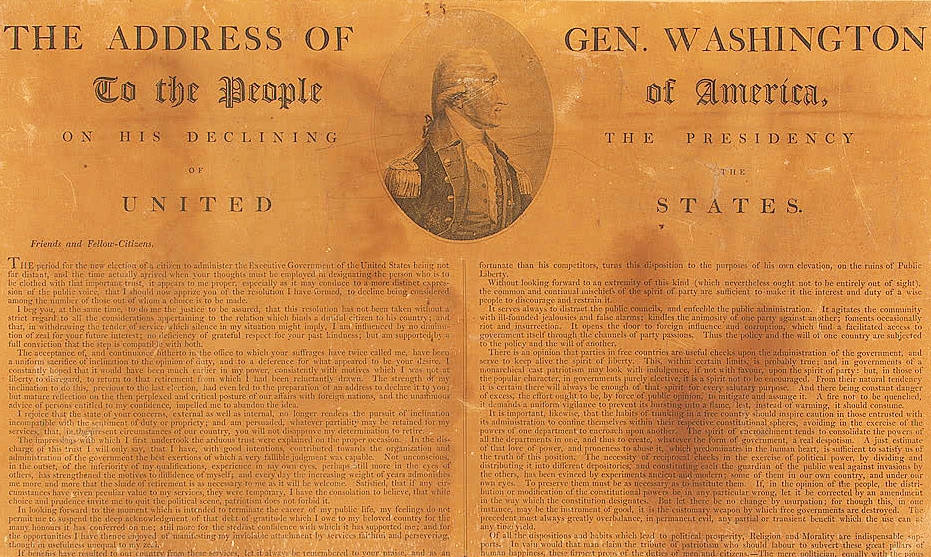
- As the first elected president of the United States, Washington also contributed to the state's expansion. During his tenure, he established a number of precedents that were eventually codified into law, such as the presidential cabinet system and the two-term restriction on presidential terms.
- In addition, Washington's designation as the "Father of His Country" comes from his symbolic personification of the core values of the country. However, a comprehensive reflection on his legacy demands an acknowledgement of the complexities and contradictions that coexist alongside his achievements.
Critiques and Controversies
- The economic policy of the Washington government was one of the primary grounds for dispute. Alexander Hamilton, his Treasury Secretary, came up with a proposal to boost industry, establish a national bank, and take on all of the state debt.
- However, Thomas Jefferson and his friends, in particular, fiercely opposed this concentration of financial power, arguing that it would result in an unequal system of economic relations that would privilege the affluent elites and undermine state sovereignty. The Federalists and Democratic-Republicans, the first political parties in American history, eventually emerged as a result of this dispute.
- Foreign policy, especially as it related to the Jay Treaty, was another hotly debated topic during Washington's presidency. It was believed that the treaty, which sought to settle unresolved Revolutionary War concerns and restore trade with Great Britain, was too advantageous to the British.
- People who supported France in the ongoing war with Britain felt particularly outraged by the pact. The Jay Treaty was criticised for being biased in favour of Britain and for betraying France, which was America's partner in the War of Independence. Washington's decision to carry out the unpopular treaty increased public opposition, which made it more difficult to enact.
- Criticism also centred on Washington's choice to put down the Whiskey Rebellion. To aid in the reduction of the national debt, distilled spirits were subject to a levy in 1791. Those who made whiskey out of their surplus grain, such as frontiersmen, suffered the most.
- Washington raised an army to quell the Pennsylvanian farmers' insurrection. The Whiskey Rebellion was put down, proving the federal government's authority, although it sparked concerns of tyranny in government.
- Furthermore, a major source of contention in modern debates concerning Washington's legacy is the fact that he had enslaved people. Born into the enslaver gentry of Virginia, Washington became an enslaver at the age of 11, following the death of his father. At the height of slavery on Mount Vernon Farm, Washington had roughly 123 enslaved people and had authority over another approximately 200 through his wife Martha's dower estate.
- He utilised enslaved labour for all aspects of his plantation, including working in the fields, housekeeping, and skilled trades. At first, he saw having enslaved people as an inherent component of his way of life and social order, which is in direct opposition to the libertarian ideals he supported.
- But as time went on, his opinions on slavery changed. His discomfort with the institution grew, especially during and after the American Revolutionary War, as a result of his exposure to abolitionist principles.
- He stated in the 1780s that he wanted to get rid of the enslaved people he had and was looking for ways to make his plantation profitable without using any enslaved labour. Those goals were complicated, nevertheless, by his dedication to the "improvement" of his plantation and his large debt load.
- Washington passed away at his Mount Vernon home on 14 December 1799, due to epiglottitis. In his will, he freed all the enslaved people he had outright. They were to be released after his wife, Martha, passed away. The enslaved individuals that were inherited from Martha's previous marriage, however, were distributed among her descendants rather than being freed.
- Although Washington is renowned for his changing views on slavery and his final choice to free his enslaved people, it is important to keep in mind that he lived the majority of his life as an enslaver and benefited directly from their labour. The conflict between Washington's personal involvement in slavery and his country's pursuit of liberty casts a complicated shadow over his legacy.
Image Sources
- https://upload.wikimedia.org/wikipedia/commons/thumb/b/b6/Gilbert_Stuart_Williamstown_Portrait_of_George_Washington.jpg/800px-Gilbert_Stuart_Williamstown_Portrait_of_George_Washington.jpg
- https://upload.wikimedia.org/wikipedia/commons/thumb/0/01/Washington_the_soldier.jpg/1280px-Washington_the_soldier.jpg
- https://upload.wikimedia.org/wikipedia/commons/f/f0/Washington%27s_Farewell_Address.jpg
Frequently Asked Questions
- Who was George Washington?
George Washington was the United States' first president, serving from 30 April 1789 to 4 March 1797. He is often referred to as the "Father of His Country" for his role in the Revolutionary War and for helping to establish the foundations of the United States.
- What were George Washington's contributions to the American Revolution?
George Washington served as the Commander-in-Chief of the Continental Army. His leadership and strategic decisions, such as the winter at Valley Forge and the surprise attack at Trenton, were instrumental in securing American independence from British rule.
- Why did George Washington become the first President of the United States?
George Washington was unanimously elected as the first President because of his leadership during the Revolutionary War, his commitment to the cause of independence, and his reputation for integrity and virtue.
